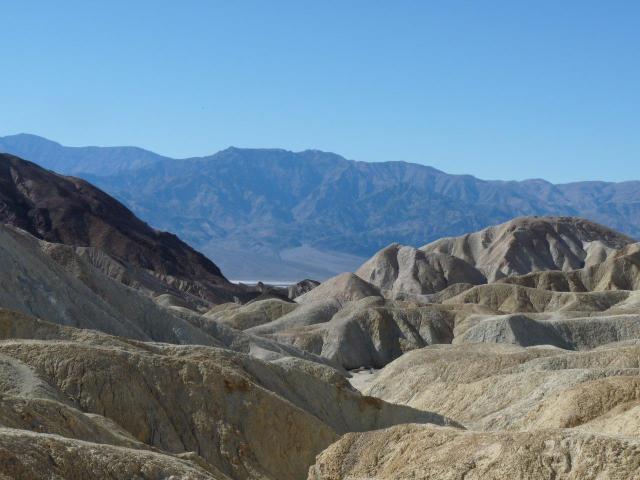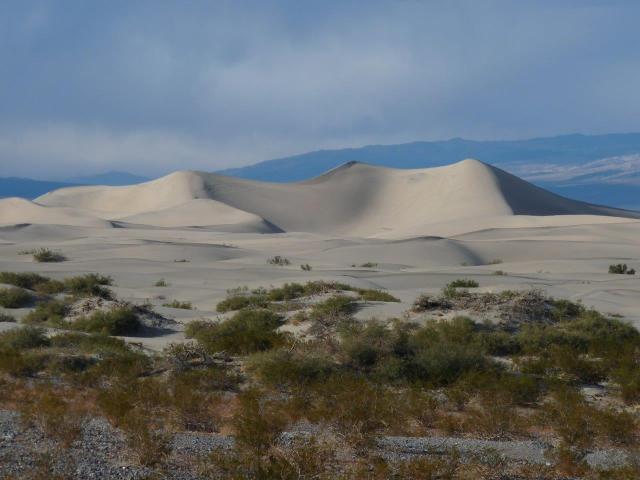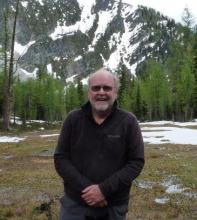Rev. David Boyd talks about his personal journey with depression.

2010 was a seminal year for me. I turned 50, our youngest child went off to university, and I took a leave of absence for depression. During my treatment while on leave, I realized—finally admitted to myself—that I’d suffered depression all of my life.
I remember the feelings I had while driving home. I distinctly remember feeling like I’d failed…myself, the Church, and God. I also remember feeling like I might never return. It was a bleak time.
Duke Divinity School (USA) and the Methodist Conference in North Carolina instituted the Clergy Health Initiative some years ago. One of their resources was a 2016 Faith and Leadership article, “How can clergy achieve positive mental health?”:
“Positive mental health is more than the absence of negative emotions. People with positive mental health experience high levels of positive emotions, which can be anything from chuckling at a cartoon to feeling awe at the sunset. They feel good about themselves as individuals, experiencing meaning in their lives, positive relationships and personal growth. They also feel satisfied with themselves in community with others—a sense of belonging and contribution.”
In 2010, all of my pent-up emotions came tumbling out. My cynicism and anger, my despair and shame, my sorrow flooded out. And I admitted that I had depression and had struggled with depression all my life. It was an emotional Sunday when I spoke to my congregation to tell them I’d be taking a leave of absence. Then, the Chair of the M&P Committee talked about next steps both for my recovery and for our congregation.
My mental health state then was challenged. While my experience is not the “fight or flight” stress of acute situations, my stress was in always being “on”—completing tasks (like Sunday worship and sermons) only to start another almost right away. I felt like things are never finished, I was losing inspiration, and I was dealing with the shame and guilt that came with feeling like I wasn’t meeting the pastoral care needs of my congregation. I’d lost a sense of awe and felt that I was alone. I didn’t feel satisfied with my vocation, with my contributions, or with my relationships.

There were two conversations that prompted me to go on Restorative Care leave. A colleague raised some concerns about my mental health in a private conversation. Also, a member of my congregation—a doctor—asked me whether I’d been diagnosed with depression. I talked things over with my spouse and we decided that I’d consult my family physician. After a diagnostic test, my doctor diagnosed me with depression; I then contacted our Employee Assistance Provider (EAP) and went through the process to be on Restorative Care leave.
My early experience with the bureaucratic process of Restorative Care leave was difficult. My doctor was supportive, as was my local Ministry and Personnel Committee contact, but waiting to hear from folks in my Conference and Presbytery took some time. Navigating through the process was daunting. I began to doubt my need for Restorative Care; but I pushed to have a Presbytery member as a contact and sounding board. Eventually, once all of the process was sorted out, I felt deep appreciation for the assistance of BC Conference and Presbytery.
In the midst of sorting out long-term approval of my leave that added to my anxiety, I followed my doctor's treatment plan and worked through some strategies with my spouse. What was helpful to me was talk therapy, meditation, exercise, cultivating space in my life, and speaking to a spiritual director. I learned about depression and why I’d denied it all my life. I remember my therapist smiling at me when I asked for a list of books on depression. She said to me, “I’m smiling because your question is quite typical of the Western way of dealing with mental illness: learn about it as much as we can, integrate that learning, and move on. Depression isn’t like that; it’s good to learn about it, for sure, but we have to live through depression. We have to experience what we experience and learn new ways of integrating our feelings and understandings, and ultimately cultivate positive mental health.”
Part of what was vital to my recovery was a trip to the deserts of Utah, Arizona, and California. My doctor okayed the trip provided I made contact every day with my spouse and a close friend. I was glad I took the risk as I had several “ah-hah” moments during that trip; I drove off the beaten-path, taking some backroads into the desert, but was never in any danger.
One moment in my desert sojourn was a very important moment. I stopped for lunch—dry, desert land all around and no one to be seen, just a desert vibrant with life. I recalled words by Paul about putting on the clothing of faith; as those words popped into my head, I realized that I was not alone and that I had to first disengage from the armour I’d put on over the years, a deathly heavy weight.
I’ve since taken a number of courses and continuing education opportunities to learn about stress and cultivating positive mental health. While I still struggle at times, I’m learning—a life-long enterprise—how to step outside of the emotions and experience them differently. I’m also learning, through yoga, meditation, breathing, and conversation, how to live holistically and healthfully. I’m also deeply appreciative of the fact that we have a Restorative Care program for those times when we need it.
—Rev. David Boyd lives in Nelson, a small town in southern BC, nestled among mountains, lush valleys, and great waterways. He feels connected to the natural world and a kinship with all creation. He has been in ministry for 32 years and enjoys baking, hiking, biking, skiing, and spending time with friends and family.

The views contained within these blogs are personal and do not necessarily reflect those of The United Church of Canada.